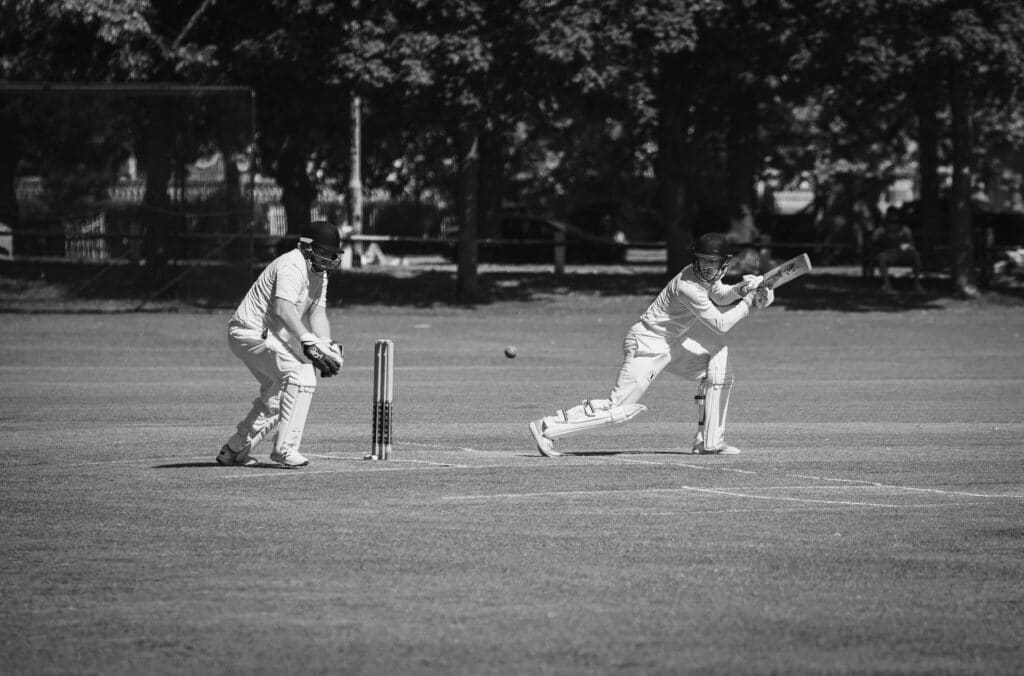Exploring Arthritis: How Physiotherapy Aids Relief & Management
What we’ll cover
- Key insights
- What is arthritis?
- What are the common symptoms of arthritis?
- What is the role of physiotherapy in managing arthritis?
- What exercises should I do for arthritis?
- Improve flexibility with mobility exercises
- Build strength around the joint
- Support overall health with cardiovascular activities
- FAQs
Exploring Arthritis:
How Physiotherapy Aids Relief & Management
Arthritis including osteoarthritis and rheumatoid arthritis are common conditions that our team see at ME Physio. Whilst physiotherapy is not a cure for arthritis, it is a very effective way to reduce and manage the symptoms associated with arthritis. This includes reducing pain and swelling, improving flexibility, improving strength and preventing further deterioration to the joint.
Key insights
- Physiotherapy plays a vital role in managing arthritis by alleviating pain and swelling, enhancing flexibility and strength, and slowing joint deterioration.
- Arthritis comes in two primary forms: osteoarthritis, caused by cartilage breakdown, and rheumatoid arthritis, an autoimmune condition affecting smaller joints.
- Symptoms of arthritis include joint pain, stiffness, swelling, creaking sounds, and changes in joint shape or alignment.
- Physiotherapy techniques help manage arthritis through pain reduction, flexibility improvement, joint protection, and tailored strength-building exercises.
- Regular exercise is key to arthritis management, combining stretching for flexibility, resistance training for strength, and low-impact cardiovascular activities for overall health.
What is arthritis?
Arthritis is a common disease that affects the joints. The most common type of arthritis are osteoarthritis and rheumatoid arthritis.
Osteoarthritis is the most common form of arthritis. It involves the wear and tear and breakdown of cartilage in the joints. It most commonly affects the hip, knee and ankle. As the cartilage breaks down and deteriorates, it can cause pain, stiffness and swelling.
Rheumatoid arthritis is an autoimmune disease. It results in the body’s immune system irritating and attacking healthy joints. It commonly affects the peripheral joints including the fingers and wrist.
Whilst arthritis cannot be cured or reversed, there are numerous treatments to assist in relieving pain, reducing stiffness and prevent further deterioration. Treatment and management for arthritis commonly involves a team approach including your trusted General Practitioner and Physiotherapist.
What are the common symptoms of arthritis?
Arthritis has a wide range of symptoms. This can include:
- Pain. This can include a sharp pain or a constant dull ache.
- Stiffness and reduced mobility. This may vary from day to day.
- Swelling and/or warmth around the joint.
- Crepitus which includes joint noises such as clicking or creaking.
- Changes to the shape and look of the joint. In some cases it can change alignment of the joint.
What is the role of physiotherapy in managing arthritis?
Physiotherapy plays an important role in the management and treatment of arthritis. Not only can physiotherapy help with reducing symptoms, but physiotherapy will assist in preventing further joint deterioration. Our team at ME Physio have extensive experience with a wide variety of arthritic conditions.
The role of physiotherapy in arthritis includes:
- Reducing pain. Physiotherapists can use a variety of techniques to reduce pain and swelling including massage of the surrounding muscles, mobilisations and dry needling.
- Improving flexibility and stiffness. Physiotherapists can improve and restore flexibility by stretching and gently mobilising the joint, it’s surrounding tissues and structures.
- Protecting and offloading the joint. In some cases, in order to reduce symptoms, protecting the joint is required. This is often the case when the joint is acutely painful or irritated. Protecting the joint can include taping and/or bracing in some cases. This is often temporary to allow time for the joint to settle and time for surrounding strength to be built. In some cases, gait aids such as walking sticks or frames can also be prescribed by your physiotherapist to help offload weight through the joint. This is usually only done in cases to ensure normal gait and avoid bad habits.
- Preventing further joint deterioration. Strengthening the surrounding muscles will help to reduce further deterioration to the joint. Physiotherapists are able to prescribe and tailor the right exercises specifically for you to improve your strength without exacerbating your symptoms.
What exercises should I do for arthritis?
Exercise is one of the most effective ways to manage and prevent arthritis symptoms. The right exercises can improve flexibility, maintain strength, and support overall health without worsening your condition. Here’s how to get started:
Improve flexibility with mobility exercises
- Gentle stretches can help restore normal mobility and reduce stiffness.
- These exercises should feel comfortable and avoid causing pain or worsening symptoms.
Build strength around the joint
- Strengthening exercises are crucial for supporting joints and preventing further deterioration.
- Options include bodyweight exercises, resistance bands, weights, or hydrotherapy, tailored to your needs.
Support overall health with cardiovascular activities
- Low-impact exercises like swimming, cycling, or walking complement physiotherapy routines.
- Choose activities you enjoy and that don’t aggravate your symptoms.
If you are unsure, your physiotherapist can assist and recommend different cardiovascular exercise options. To get started with physiotherapy to manage your arthritis, contact our team or book online.
FAQs
1. Are there any risks associated with exercising if I have arthritis?
Exercise is generally safe and beneficial for people with arthritis when done correctly. However, improper techniques or exercises that are too intense can exacerbate symptoms, causing pain or inflammation. It’s important to avoid high-impact activities or movements that strain the affected joints. Working with a physiotherapist ensures you follow a tailored exercise plan that prioritises your safety and accommodates your specific condition. If you experience unusual pain or swelling after exercise, consult your physiotherapist to adjust your routine.
2. When to Consult a Physiotherapist
It’s important to seek professional help when arthritis begins to affect your quality of life or limit your daily activities. You should consider consulting a physiotherapist if:
- You experience persistent joint pain, swelling, or stiffness.
- Your mobility is restricted, and you find it difficult to perform everyday tasks.
- You notice joint deformities or changes in alignment.
- Your symptoms worsen despite trying home remedies or self-management.
- You want to learn safe and effective exercises tailored to your condition.
A physiotherapist can assess your situation, provide expert advice, and design a personalised treatment plan to manage your arthritis effectively and improve your overall well-being.
3. Can physiotherapy prevent arthritis from getting worse?
While physiotherapy cannot cure arthritis, it is highly effective in slowing its progression. By strengthening the muscles around your joints, improving flexibility, and encouraging healthy movement patterns, physiotherapy reduces the stress on affected joints. This helps to minimise further wear and tear or inflammation, effectively delaying joint deterioration. Regular physiotherapy sessions and a commitment to prescribed exercises play a key role in managing arthritis and maintaining joint health over time.
4. How often should I see a physiotherapist for arthritis management?
The frequency of physiotherapy sessions depends on the severity of your arthritis, your symptoms, and your personal goals. Initially, you may need weekly or biweekly sessions to address acute symptoms and develop a tailored treatment plan. As your condition improves, your physiotherapist may recommend less frequent visits, focusing on maintaining progress and adjusting your exercises as needed. Always consult your physiotherapist to determine the best schedule for your specific needs.
5. Can physiotherapy help with arthritis in all parts of the body?
Yes, physiotherapy is effective for managing arthritis in various parts of the body, including the knees, hips, hands, spine, and shoulders. Physiotherapists tailor treatments to the specific joint(s) affected, focusing on reducing pain, restoring mobility, and strengthening surrounding muscles. Whether your arthritis affects weight-bearing joints or smaller peripheral ones, a physiotherapist can create a customised plan to help you manage symptoms and improve function.
6. How long does it take to see improvement with physiotherapy?
The timeline for improvement varies depending on the severity of your arthritis, your overall health, and your adherence to the treatment plan. Many people notice reduced pain and improved mobility within a few weeks of starting physiotherapy. However, significant progress, such as increased strength or long-term symptom management, may take several months of consistent effort. Regular follow-ups with your physiotherapist ensure your plan is optimised for steady improvement.
7. What lifestyle changes can I make to better manage arthritis?
Adopting a healthy lifestyle can significantly improve arthritis management. Key changes include:
- Staying active: Engage in low-impact exercises like swimming or walking to maintain joint mobility and overall fitness.
- Maintaining a healthy weight: Reducing excess weight lessens stress on weight-bearing joints, alleviating pain and slowing joint deterioration.
- Eating a balanced diet: Include anti-inflammatory foods, such as omega-3-rich fish, leafy greens, and nuts, while limiting processed and sugary foods.
- Managing stress: Practices like yoga, meditation, or deep breathing can help you cope with pain and inflammation.
- Quitting smoking: Smoking can increase inflammation and worsen arthritis symptoms.
- Consulting your physiotherapist or healthcare provider can help you make effective and sustainable lifestyle adjustments.



